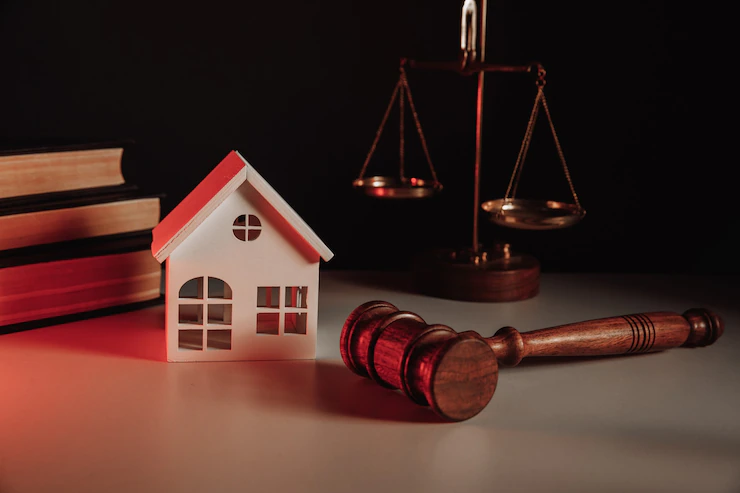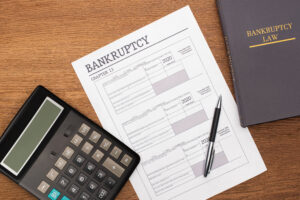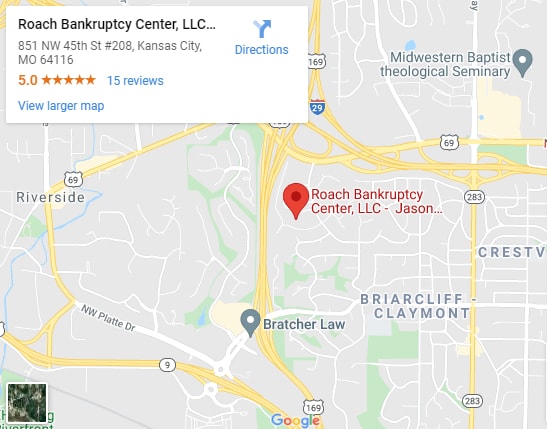Filing Bankruptcy
Filing for bankruptcy is for people who are experiencing serious debt problems. Filing of a bankruptcy petition is an effective legal-aid for you and for the creditor. It also entails the dismissal of your credit card bills, any forms of debt, personal loans, medical bills, and a lot more. By doing this, there is still no assurance that your liabilities will be wiped-out by the creditors. For example, you are still obliged to pay for your student loan debt, unless otherwise you can show a undue hardship. Alimony, child support, and other tax debt obligations are also not dischargeable in bankruptcy.
If you are a debtor looking for a Kansas City bankruptcy attorney, Roach Bankruptcy Center, LLC can explain what a bankruptcy can and cannot do for you. Before filing for bankruptcy, this information must be well understood to avoid future constraints.
What Can Bankruptcy Do?
People who are struggling with debt are the ones who file for bankruptcy. It provides you with the option to start again and have your liabilities eliminated. There are two types of personal bankruptcy: Chapter 7 and Chapter 13. Each form has various advantages and, in most situations, treats your property and debt differently. Thus, between and within forms of bankruptcy, you should select the one that is best for you.
Below are what you can anticipate from Chapter 7 and Chapter 13 bankruptcy:
Bankruptcy prevents creditor harassment
After you file a bankruptcy case, the bankruptcy will then issue an automatic stay order. This order will stop the debt collectors from making calls, filing lawsuits, and wage garnishment, but not in the absolute sense. You are still liable for support payment, and criminal lawsuits will be retained.
Temporarily stops a Repossession, Foreclosure, and Eviction
As long as they are pending, automatic stay would block these actions. Once completed, the bankruptcy will no longer be of assistance.
- Foreclosure and Repossession. Bankruptcy chapter 7 won’t help you in retaining possession on your personal-property albeit automatic stay will prevent repossession or foreclosure. If you are unable to make the account current, you are likely to lose your house or car once the stay lifts. On the other hand, filing Chapter 13 has a feature that will enable you to catch up on your previous payments so that you won’t lose the property.
- Evictions. If there is an eviction during the bankruptcy process, it will be suspended until the petition is filed. Nonetheless, the stay will be brief. It is always worth noting that if the landlord has already found you guilty of eviction, bankruptcy will no longer aid you in most jurisdictions.
Wiped-out debts, credit card, and other unsecured debt
Aside from student loans, bankruptcy is a wonderful option if you still have non-priority unsecured obligations. Medical bills, credit card debt, past-due electricity payments, gym membership, and other personal responsibilities, for example, can all be discharged. If you did not commit to reinstate the purchased real estate if you did not obtain the payment, the loan is considered unsecured. If, on the other hand, you use a credit card, you must return the purchased products. Computers, jewelry, electronics, and appliances are frequently used as collateral for secured loans.
Eradicate Secured Debt
If you have sufficient budget for payment which you secured with collateral, a petition for bankruptcy can wipe out the debts. But keep in mind that in a bankruptcy, you can no longer retain your car, house, computer, and other properties after payment of the loan. Once you freely commit to guarantee debt with property, you must either pay the obligation or return the property.
What Bankruptcy Cannot Do?
Notwithstanding the numerous things that bankruptcy can do, bankruptcy exemptions still exist. Below are what bankruptcy cannot do for your financial problems.
Preventing a secured creditor from repossessing or foreclosing on a property that you cannot afford
Bankruptcy code does not constitute removing the liens. A lien enables the lender to take the property. In bankruptcy, the lien will remain on the property unless the debt is paid.
For example, if you have a debt with a creditor who has a lien on your property, bankruptcy might release you from the need to pay all debts. Doing this won’t take the lien from your property, the creditor retains the ability to revive the collateral. For as long as the mortgage is unpaid, the lender can validly foreclose if the automatic stay is lifted.
Remove alimony obligations and child support
Bankruptcy cannot eliminate these obligations, and you still owe the debts in total for alimony obligations and child support. In Chapter 13 bankruptcy procedure, you are obliged to pay the full amount as part of your repayment plan.
Remove student loans
The bankruptcy law makes it clear that you can only discharge your student loans if you can prove that paying them will cause “undue hardship.” Fundamentally, you must demonstrate that you are really unable to pay. Bankruptcy options cannot approve this easily.
Remove tax debts
Tax is an obligation and eliminating it is never easy for the United States bankruptcy court. It is not automatically granted in the case of bankruptcy. There is a tight rule in place to remove past unpaid tax obligations.
Remove nondischargeable debts
In either of the chapters, bankruptcy rules enumerates the non-dischargeable debts:
- Debts that you failed to include on your bankruptcy documents;
- Penalties for traffic violations, as well as criminal convictions; and
- Damages for wrongful death or physical harm caused by a car accident.
Accept fraudulent debt
Bankruptcy is not allowed to be discharged if the creditor filed an adversary proceeding suit and persuaded the judge that the liability shall survive your bankruptcy. Such actions are considered lying on bankruptcy laws and credit applications or presenting loaned property as your own in order to utilize it as security for a loan.
Looking for a trusted bankruptcy law firm in Missouri?
If you are a debtor seeking a skilled bankruptcy lawyer in Kansas City, go no farther than Roach Bankruptcy Center, LLC. Your debt difficulties will be handled with due care based on 15+ years of honest representation for debtors. We assist you in preventing foreclosures and repossessions, wage garnishment, litigation, and creditor harassment. Call us today to consult our competent bankruptcy attorneys!



